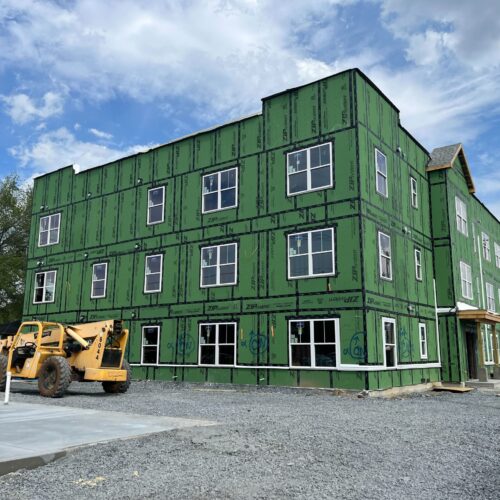Pennsylvania and Wisconsin Selected to Develop Groundbreaking Strategies for Employing People with Criminal Records
The National Reentry Resource Center (NRRC) has selected Pennsylvania and Wisconsin to receive assistance in developing comprehensive plans to improve the employment outlook for people with criminal records.
The NRRC, a project of the Council of State Governments (CSG) Justice Center, will provide intensive technical assistance to support the design and implementation of strategies that unite corrections and workforce development partners in Philadelphia and Milwaukee counties. The work will assess the needs of individuals reentering society and establish clear plans to provide each of them with the sustainable support they need.
 “The goal here is to preserve public safety, and one key part of protecting the people of Wisconsin is ensuring that when someone is released from lock-up, they don’t reoffend,” said Wisconsin Lt. Gov. Rebecca Kleefisch (pictured right). “Employment is an instrumental part of success after incarceration, and it’s also a monumental hurdle for many reentering society. We need to create a plan that works for everyone, and these evidence-based approaches will help get us there.”
“The goal here is to preserve public safety, and one key part of protecting the people of Wisconsin is ensuring that when someone is released from lock-up, they don’t reoffend,” said Wisconsin Lt. Gov. Rebecca Kleefisch (pictured right). “Employment is an instrumental part of success after incarceration, and it’s also a monumental hurdle for many reentering society. We need to create a plan that works for everyone, and these evidence-based approaches will help get us there.”
Prior to an application for assistance by the Wisconsin Department of Corrections, the state had already prioritized its commitment to employment issues. In 2012, Gov. Scott Walker’s administration created the Task Force on Minority Unemployment in Milwaukee to address “unacceptably high” unemployment rates, particularly among black males, in the state’s largest city. The task force is co-chaired by Lt. Gov. Kleefisch.
The active involvement of the Milwaukee Area Workforce Investment Board in the project will also provide a strong partnership to develop strategies and leverage additional funding to improve employment outcomes.
The strategies developed and implemented will rely on the evidence-based research detailed in Integrated Reentry and Employment Strategies, a white paper released by the CSG Justice Center in September 2013 as part of the national reentry and employment initiative supported by the Annie E. Casey Foundation and the U.S. Department of Justice’s Bureau of Justice Assistance, with guidance from the U.S. Department of Labor.
“We are excited to be supporting this groundbreaking work in Milwaukee county,” said Denise O’Donnell, director of the Bureau of Justice Assistance. “Considerable work remains to position the workforce development community and their partners in the corrections and reentry fields to translate this research and information into policy and practice. This is a great step toward achieving concrete results.”
Aligning Training and Education
In Pennsylvania, there has also been a heavy focus on employment issues among people with criminal records, a population in which more than 80 percent are unskilled or possess few demonstrable workforce skills. The Pennsylvania Department of Corrections partnered with the Pennsylvania Department of Labor and Industry to align education and training assistance to in-demand occupations, while also tracking progress on job placement and retention for individuals with criminal records.
 “Ask a person in prison or jail to name the most important thing they need to succeed in the community when they’re released. The response will almost always be the same: ‘I need a job,’” said John Wetzel (pictured left), secretary of Pennsylvania’s Department of Corrections and a member of the CSG Justice Center’s Board of Directors. “It’s these data-driven strategies that will allow us to further our collaborative efforts, strengthen our reentry process, and ensure those leaving prison or jail become productive, tax-paying citizens.”
“Ask a person in prison or jail to name the most important thing they need to succeed in the community when they’re released. The response will almost always be the same: ‘I need a job,’” said John Wetzel (pictured left), secretary of Pennsylvania’s Department of Corrections and a member of the CSG Justice Center’s Board of Directors. “It’s these data-driven strategies that will allow us to further our collaborative efforts, strengthen our reentry process, and ensure those leaving prison or jail become productive, tax-paying citizens.”
The strategies developed and implemented will rely on the evidence-based research detailed in Integrated Reentry and Employment Strategies, a white paper released by the CSG Justice Center in September 2013 as part of the national reentry and employment initiative supported by the Annie E. Casey Foundation and the U.S. Department of Justice’s Bureau of Justice Assistance, with guidance from the U.S. Department of Labor.
“We are excited to be supporting this groundbreaking work in Philadelphia and Milwaukee counties,” said Denise O’Donnell, director of the Bureau of Justice Assistance. “Considerable work remains to position the workforce development community and their partners in the corrections and reentry fields to translate this research and information into policy and practice. This is a great step toward achieving concrete results.”
 Zero Returns to Homelessness Initiative Launches Nationally, with Pennsylvania Leading the Way
Read More
Zero Returns to Homelessness Initiative Launches Nationally, with Pennsylvania Leading the Way
Read More
 New Hampshire Continues Justice Reinvestment Effort to Improve Conditions for People Who Are High Utilizers of Criminal Justice and Behavioral Health Systems
Read More
New Hampshire Continues Justice Reinvestment Effort to Improve Conditions for People Who Are High Utilizers of Criminal Justice and Behavioral Health Systems
Read More














